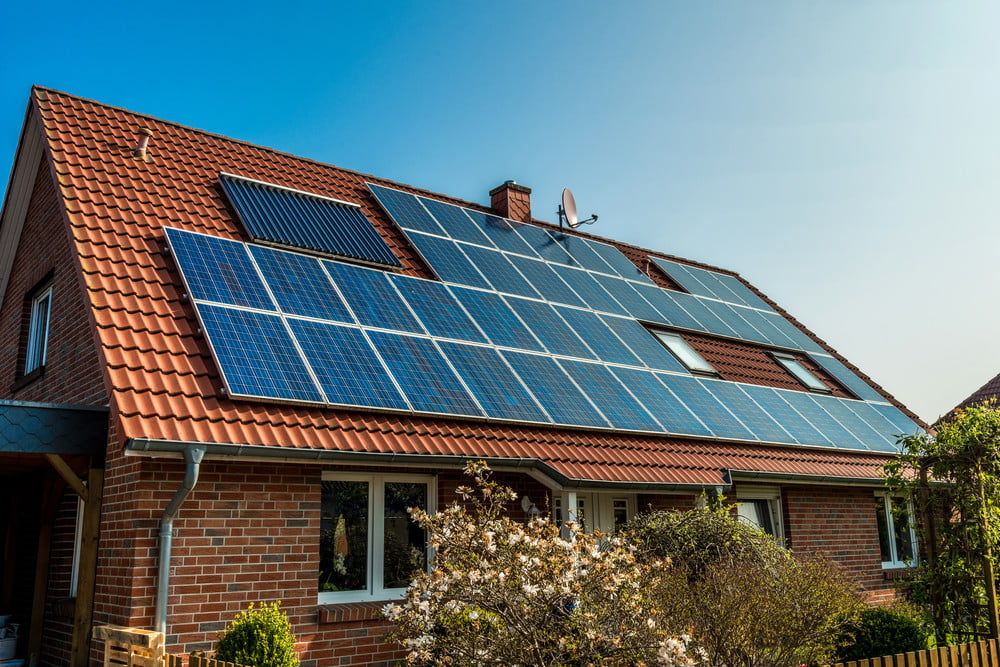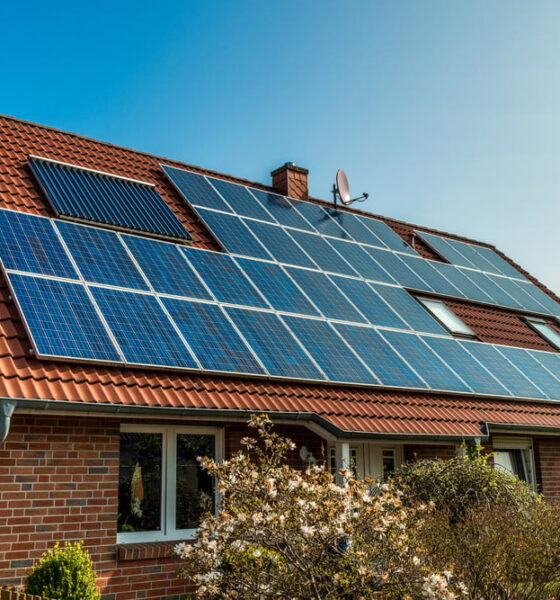

Energy
The Questions to Ask Before Having Solar Panels Installed
Solar energy is one of the fastest growing sources of renewable energy in the US. It has experienced a 50% year-on-year growth rate for the past decade.
A lot of this is due to increased publicity, but also certain Federal tax incentives. If you’re thinking about installing solar panels on your home, you need to make sure it’s right for you.
Make sure you ask these questions before deciding to install solar panels.
Is Your Solar Window Good Enough for Solar Panels?
By solar window, we mean the amount of sunlight your roof gets. You might live in a state that doesn’t get much sunlight. Your home may be facing the wrong way. There could be high-rise buildings limiting how much sun you get.
Obviously, California is the leading state, with 17% of the state’s electricity coming from solar power. But if you don’t live in the southern US where the answer is obvious, ask a professional about whether your home is getting enough of a solar window to justify the cost.
What Kind of Solar Technology is Best for Your Home?
Before opting for solar panel installation, you must understand there are different types of solar technology.
The most common is photovoltaic, which uses cells to transform sunlight into thermal energy and electricity.
However, if you use most of your energy for heating, you may want to invest in solar thermal technology. This would give you the opportunity to recoup the initial installation cost sooner.
How Can You Connect to the Energy Grid?
How you connect to the energy grid will vary based on where you live. Sometimes you might have to pay a fee to connect your new system to the grid. In some states it can take a while for this to happen.
Additionally, you’ll want to know how you’re going to be reimbursed for generating electricity. Some states don’t make the utility companies pay for a significant amount of energy generated.
That can make it harder to make your money back.
One example is net metering in Nevada, which pays some of the lowest rates in the country for energy generated.
Is Your Installer Qualified to Carry Out the Work?
The growth of solar energy has meant an increase in the number of contractors not qualified to install solar panels.
Solar panels are loved because they have few moving parts, therefore require little maintenance. That’s led to a lot of scams.
You should look for the North American Board of Certified Energy Practitioners certification before you give money to an installer to put up your solar panels.
Should You Lease or Buy Solar Panels?
Buying solar panels and having them installed is a significant expense. A cheaper alternative is leasing.
You need to perform a cost analysis with a professional to determine which option is best for you. Leasing might be cheaper but buying pays off more in the long-term.
You need to check the company’s terms and conditions if you want to lease. Should the lease end, it may be part of their policy to remove the system.
It’s also worth speaking to a solar leasing company about the potential tax benefits. You may be able to claim Federal tax credits for the installation but not for the cost of the actual system. The company would be entitled to that part of the tax benefit.
Leasing vs. buying is a complex issue, and you should always speak to a professional before deciding.
Conclusion: Ask These Questions Before Having Solar Panels Installed
With solar energy systems coming with high installation costs, you need to do research and ask the right questions.
What sort of technology is best? Do you want to lease or buy? Is your home even suitable for solar panels? Only a professional can give you a comprehensive answer.
Do you think solar panels are the right investment for you?


 Environment12 months ago
Environment12 months agoAre Polymer Banknotes: an Eco-Friendly Trend or a Groundswell?

 Features11 months ago
Features11 months agoEco-Friendly Cryptocurrencies: Sustainable Investment Choices

 Features12 months ago
Features12 months agoEco-Friendly Crypto Traders Must Find the Right Exchange

 Energy11 months ago
Energy11 months agoThe Growing Role of Solar Panels in Ireland’s Energy Future
















